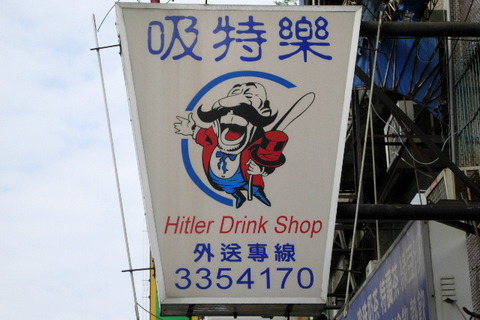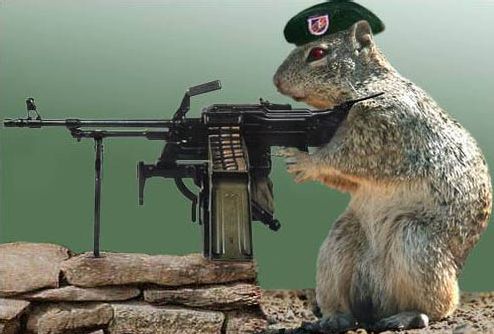UPDATE (Aug 5/07): It just occurred to me that I spent this entire post talking about "transitional justice" without actually explaining what that even means. David on Formosa begins his post on the subject the smart way – by defining the term. Stealing from his source:
Transitional justice refers to a range of approaches that societies undertake to reckon with legacies of widespread or systematic human rights abuse as they move from a period of violent conflict or oppression towards peace, democracy, the rule of law, and respect for individual and collective rights.
There. NOW this post should make sense, especially to the uninitiated.
Over at Jerome Keating’s website, Dr. Keating believes transitional justice needs to be a campaign issue in Taiwan in 2008 (Hat tip to Tim Maddog at Taiwan Matters!). In an earlier post, Dr. Keating describes the structural advantage the Chinese Nationalist Party (KMT) has over other parties:
…we had seen how the Chinese Nationalist Party (KMT) has gone on record to admit it has over [NT$ 25 billion] in assets [US$ 757 million]. Its closest rival, the ruling party Democratic Progressive Party (DPP) has barely about one per cent of that, it has approximately [NT$ 25 million] in assets, or US$ 7.5 million.
A great deal of this 100:1 advantage can be explained by the forced sales and outright confiscations that the KMT was the beneficiary of during 38 years of martial law. He notes one irony: communist parties from former Soviet Bloc nations, ideologically dedicated to confiscation, were eventually forced to return assets they had confiscated. Meanwhile, the KMT, ideologically opposed to confiscation, not only confiscated vast amounts of property, but has STILL never returned it!
That this might be an issue of vulnerability for the KMT was highlighted a week ago, in a column by Dr. Joe Hung. Towards the end of the piece, Dr. Hung began casting out wildly, looking for other transitional justice issues that the country should attend to besides this one:
Why not help the former patients of Hansen’s disease segregated by the Japanese? President Chen Shui-bian has apologized for their continued segregation after 1945, but his government wants to remove them from the sanatorium they now call home and raze it to make way for a mass transit system.
Why not help Taiwan’s dwindling number of "comfort women"? They were forced to work as sex slaves, serving troops of the Japanese imperial army in the Pacific War. All they want is an apology from the Japanese government. Has Taipei done anything to get Tokyo to offer it?
Why not reckon with the slaughter of ten times more than the victims of the 2/28 Incident the Japanese committed in the first decade of their colonization of Taiwan. For a mere five years, from 1898 to 1902, at least 11,950 people were slain as rebels. How about the Wushe Incident of 1930? The Atayal village of Wushe, with 270 inhabitants and 60 families, was totally destroyed. Nearly all of the men, women and children in the village were massacred by Japanese troops. Japanese army warplanes bombed the Atayal reservation. Gas bombs were dropped to smoke out those "rebels" who refused to surrender.
Why not seek transitional assistance for all the indigenous people whose forebears the ethnic Chinese killed on Taiwan, to grab their land and go into their forests to fell camphor trees? In 1662, when Koxinga took Taiwan from the Dutch their population was estimated at 200,000. That population remained almost the same in 1945. It may not be genocide, but the fact is that countless thousands of Austronesians were slaughtered by the ethnic Chinese, as well as the Japanese colonizers. James Davidson, the first American-born U.S. consul in Taipei at the turn of the twentieth century, reported that aborigines were killed and their flesh sold to ethnic Chinese, who ate it. Why not reckon with these horrible legacies?
I’m not necessarily opposed to action on any of these issues, but I think Dr. Hung overstates the urgency of his cases:
1) The Lo-Sheng Sanatorium. What this is is a classic case of competition for a finite resource. At least 10,000 residents of the town of Hsin-juang want the sanatorium leveled so that they can get an MRT station. You know – reduce traffic on the streets, clean up the air a bit, and all those other nice things that mass transit is good for. Meanwhile, the project is being held up by a mere 75 former lepers who want the sanatorium to stay.
Now, Hung would have his readers believe that cruel President Chen Shui-bian stroked his Snidely Whiplash moustache one day and decided on a whim to throw all those poor, disfigured old lepers into the gutter. But the truth is, it was the former KMT government that sold Lo-Sheng for use as an MRT depot, all the way back in 1994.
The KMT wants to run on THIS issue of transitional justice? Fine. Maybe they can start by explaining why they sold Lo-Sheng WITHOUT EVER CONSULTING THE BLOODY RESIDENTS. Forget consultation – the KMT never bothered to NOTIFY the poor bastards even AFTER the sale. The first the lepers ever heard of the deal was TEN YEARS LATER when the BULLDOZERS arrived, Hitch-hiker’s Guide to the Galaxy-style.
The reality is that 150 former Hansen’s disease patients have already moved into the brand-new hospital just next door, while the 75 that remain prefer the open air and gardens of the sanatorium they live in now. Can’t say I blame the ones that want to stay. But surely, the solution is obvious. Just build ’em another sanatorium SOMEWHERE ELSE. And make sure it’s bigger. And nicer.
Oh, and don’t forget to put it all on the KMT’s tab. Because as far as I can make out, they’re the idiots responsible for the whole mess in the first place.
2) The "comfort women". An apology from Japan would be nice. And future help from Japan against a Chinese attack would also be nice. If Taiwan can get both through amiable diplomatic means, then great. But if aggressive pursuit of the former alienates Japan from providing the later, then prefer the latter instead. I don’t see allies America and Britain demanding apologies from each other for old wounds.
National survival trumps apologies to a tiny minority. Welcome to realpolitik.
3) Other, earlier Japanese atrocities. Um, at this point, exactly how many first generation descendants of these victims are still alive to benefit from the transitional justice Dr. Hung proposes? Moreover, the KMT had 55 years to deal with this (and the "comfort women" issue as well). If their efforts were half-hearted, perhaps they can be forgiven because of the realpolitik mentioned in Case #2.
4) The aborigines. Dr. Hung discusses the injustices done to Taiwanese aborigines that date back to the year 1662. 1662? FOUR HUNDRED years ago? By now, I get the distinct impression Hung isn’t just asking for TRANSITIONAL justice – he’s asking for something Thomas Sowell calls COSMIC justice. He’s asking that every injustice that was EVER DONE IN THE ENTIRE UNIVERSE be attended to.
And it can’t. It simply can’t.
And Dr. Hung knows that. So what in effect he’s saying is that the KMT shouldn’t give back ANY of the $757 million it plundered until ALL THE WRONGS IN THE WORLD are made right. Which of course, might just be a while.
Hung closes on this note:
Of course, President Chen and his government are not going to do anything to get transitional justice done for all these people, for the very simple reason that any help rendered won’t be translated into votes at the ballot boxes in December’s legislative elections, and the presidential race in March next year.
But while he sees cynicism, I see democracy. Let the Taiwanese talk about the relative merits of Joe Hung’s cases, as well as that of the KMT’s looted assets. Let the jurors decide which cases are more urgent, and which are more marginal. Then, let the members of the jury vote.
All 13 million of them.
POSTSCRIPT: Another aspect of the program for transitionaljustice in Taiwan is the de-glorification of its former dictators. Dr. Hung also discussed this in his column; my reply can be found here.



